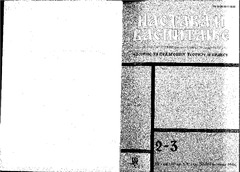Приказ основних података о документу
TIMSS 2003 : Self-concept and study aims as motivational factors in mathematics attainment
TIMSS 2003 - self-koncept i ciljevi učenja kao motivacioni činioci matematičkog postignuća učenika
| dc.creator | Mirkov, Snežana | |
| dc.creator | Janjetović, Dragan D. | |
| dc.date.accessioned | 2021-03-17T13:24:30Z | |
| dc.date.available | 2021-03-17T13:24:30Z | |
| dc.date.issued | 2004 | |
| dc.identifier.issn | 0547-3330 | |
| dc.identifier.uri | http://ipir.ipisr.org.rs/handle/123456789/69 | |
| dc.description.abstract | The paper presents a portion of the findings obtained by the international comparative examination of academic attainments in mathematics (TIMSS 2003). The sample comprised 4537 students of the eighth (final) year of primary schools in Serbia. The correlation analysis included: general mathematics knowledge test score, a scaled score of the mathematics self-concept, scale scores of various aspects of attributing importance to mathematics (these were treated as study aims), as well as sex differences. The results show that the self-concept is in a higher positive correlation with the knowledge test results compared to other variables. All examined study aims were in positive correlation with the self-concept. No sex differences were found regarding attainment or any other examined variable. A positive correlation was found between various study aims. The obtained findings of the relations between the self-concept and attainment, as well as between the self-concept and study aims are in accord with the findings of numerous other researches, especially in the context of the theory of self-regulated learning. | en |
| dc.description.abstract | U radu je prezentiran deo nalaza dobijenih međunarodnim komparativnim proučavanjem obrazovnih postignuća u matematici (TIMSS 2003). Uzorak je obuhvatio 4537 učenika osmog razreda osnovnih škola iz Srbije. U korelacionu analizu uključeni su: opšti skor na testu znanja iz matematike skor na skali matematičkog self-koncepta, skorovi na skali koja ispituje različite aspekte pridavanja značaja matematici (tretirane kao ciljevi učenja) i podaci o polu učenika. Rezultati pokazuju da je matematički self-koncept jače povezan sa postignućem na testu znanja iz matematike, u odnosu na druge varijable. Utvrđeno je da su svi ispitivani ciljevi učenja matematike u pozitivnoj korelaciji sa matematičkim self-konceptom. Nisu dobijene polne razlike ni u odnosu na postignuće, ni u odnosu na druge ispitivane varijable. Pokazalo se da postoji pozitivna korelacija između različitih ciljeva učenja matematike. Dobijeni nalazi o postojanju veza između self-koncepta i postignuća, kao i između self-koncepta i ciljeva učenja, u skladu su sa nalazima drugim istraživanja, naročito u kontekstu teorije samoregulisanog učenja. | sr |
| dc.publisher | Beograd : Pedagoško društvo Srbije | |
| dc.publisher | Beograd : Filozofski fakultet - Institut za pedagogiju i andragogiju | |
| dc.relation | Projekat Ministarstva nauke Republike Srbije, br. 1429: Vaspitanje i obrazovanje za izazove demokratskog društva | |
| dc.rights | openAccess | |
| dc.rights.uri | https://creativecommons.org/licenses/by-sa/4.0/ | |
| dc.source | Nastava i vaspitanje | |
| dc.subject | mathematics attainment | en |
| dc.subject | motivational factors | en |
| dc.subject | self-concept | en |
| dc.subject | study aims | en |
| dc.subject | primary school students | en |
| dc.subject | sex | en |
| dc.subject | matematičko postignuće | sr |
| dc.subject | motivacioni činioci | sr |
| dc.subject | self-koncept | sr |
| dc.subject | ciljevi učenja | sr |
| dc.subject | učenici osnovne škole | sr |
| dc.subject | pol učenika | sr |
| dc.title | TIMSS 2003 : Self-concept and study aims as motivational factors in mathematics attainment | en |
| dc.title | TIMSS 2003 - self-koncept i ciljevi učenja kao motivacioni činioci matematičkog postignuća učenika | sr |
| dc.type | article | |
| dc.rights.license | BY-SA | |
| dc.citation.epage | 167 | |
| dc.citation.issue | 2-3 | |
| dc.citation.other | 53(2-3): 155-167 | |
| dc.citation.spage | 155 | |
| dc.citation.volume | 53 | |
| dc.identifier.fulltext | http://ipir.ipisr.org.rs/bitstream/id/1549/TIMSS2003_self_concept_2004.pdf | |
| dc.identifier.rcub | https://hdl.handle.net/21.15107/rcub_ipir_69 | |
| dc.type.version | publishedVersion |

